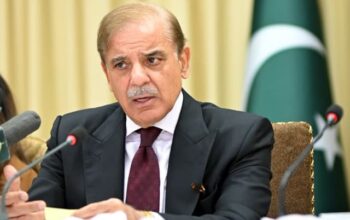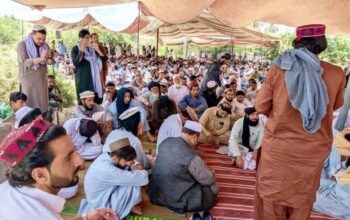By Staff Reporter
ISLAMABAD: The parliament is set to convene over the next two days to approve contentious constitutional amendments on the country’s top judiciary, with a key opposition party pledging crucial support to the government move.
Officials said a parliamentary committee reviewing the draft amendments will meet on Wednesday, followed by sessions of the National Assembly and Senate on Thursday or Friday.
The development comes after pro-Taliban Jamiat Ulema-i-Islam-Fazl (JUI-F) chief Maulana Fazlur Rahman agreed to back the amendments, provided a separate constitutional court is replaced with a Supreme Court bench.
“Let me be very clear that we rejected the first draft and we would reject it again even today,” Rahman told a news conference in Karachi after a detailed meeting with Pakistan’s Peoples Party chairman Bilawal Bhutto Zardari, a key backer of the separate constitutional court in the country.
Rehman, however, showed flexibility during his meeting with Bhutto-Zardari, where both leaders agreed on a joint draft for the proposed amendment and committed to building consensus among other parliamentary parties.
“We kept engaging with each other in the larger interest. We successfully removed the differences between the two sides,” Rahman said.
Bhutto-Zardari and Rahman will meet ruling Pakistan Muslim League supremo Nawaz Sharif on Wednesday on their agreed draft amendments.
Bhutto-Zardari declined to share details of agreed draft amendments.
“I think it’s not appropriate to share the details of the consensus or the key points of the draft before meeting Mian Sahib [Nawaz Sharif] tomorrow,” he said.
“Maulana Sahib is meeting Mian Sahib tomorrow. We are also invited for lunch at Raiwind, so we hope that once this process of understanding and consensus is complete, we can share the details with you in a much better way.”
Prime Minister Shehbaz Sharif’s ruling coalition government has been trying to pass a set of constitutional amendments since last month that the country’s opposition and prominent lawyers say is aimed at granting more power to the executive in making judicial appointments. The government denies the allegations and says the amendments aim to provide speedy justice to thousands of litigants and ensure the parliament’s supremacy remains intact.
The proposed amendments are expected to establish a federal constitutional court, raise the retirement age of superior judges by three years, and modify the process for the appointment of chief justice of the Supreme Court of Pakistan.
Sharif’s key coalition ally, the PPP has been spearheading negotiations with political parties and the legal fraternity after the government failed to muster the required two-thirds majority in parliament last month to get the amendments passed.
The government is pushing for constitutional amendments to alter the process of appointing the Chief Justice. The move comes as Chief Justice Qazi Faez Isa is set to retire on Oct 25, with Justice Mansoor Ali Shah next in line for the top spot. However, the government, its ally PPP, and the military establishment are reportedly against Shah’s appointment.
According to the current law, Justice Shah will automatically become the Chief Justice. But the proposed amendments aim to change the appointment procedures and appointing body.
Local media reported that the successor of current Chief Justice Qazi Faez Isa will be picked from the three most senior judges of the Supreme Court, selected by an eight-member parliamentary committee.
The Federal Constitutional Court will consist of seven members, including the chief justice. The first chief justice of the FCC will be appointed by the president on the advice of the prime minister.
Pakistan’s government requires a two-thirds majority in both the National Assembly and Senate to pass the proposed constitutional amendments but currently falls short, needing 13 additional votes in the 342-seat National Assembly and nine more in the 104-seat Senate.
Lawyers warn the proposed amendments would undermine the trichotomy of powers.
Copyright © 2021 Independent Pakistan | All rights reserved




